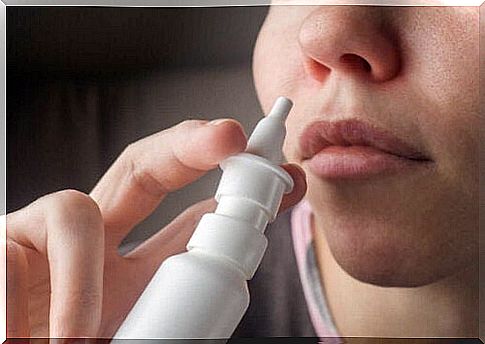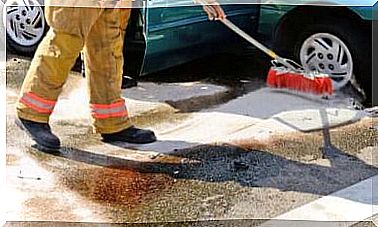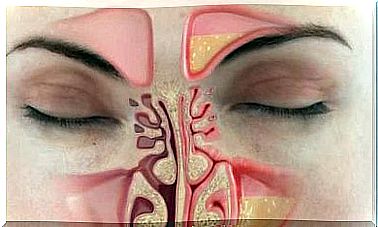How To Take Care Of A Cold At Home

In most cases, it is quite easy to take care of a cold at home. This condition can affect anyone and usually does not cause major complications. However, the symptoms are bothersome and can cause the person to skip work or school.
Symptoms such as nasal congestion, sneezing and coughing cause a feeling of general discomfort that hinders the process of performing daily tasks. Fortunately, it usually gets better in a short time if you take some personal care measures. Read on to learn more!
What is a cold?
A cold refers to a viral infection that affects the respiratory tract. It can be caused by many different types of viruses. It is actually estimated that there are around 200 types of related viruses, such as rhinovirus, adenovirus and others.
Throughout history, experts have tried to identify the factors that help this pathology to develop. For example, studies have shown that this happens more often in children, in stressful situations or in places where the environment is dry and cold.
Symptoms usually occur two to three days after being exposed to the virus. Let’s look at some of them:
- Stuffy nose
- Nysing
- General discomfort
- Low fever (only in some cases)
- Cough and sore throat
- Headache
The mucus thickens as the disease progresses. However, the symptoms improve on their own after a few days. Despite this, it is important to use some tips to deal with it as well as reduce the risk of complications.

Tips for taking care of a cold at home
If there are no signs of complications from a cold episode, a few simple things are more than enough to deal with the symptoms. Following them, in addition to resting adequately, will relieve the symptoms in a short time.
Drink water and healthy fluids
Staying hydrated is one of the basic measures to relieve nasal congestion. When you drink a lot of fluids, the mucus thickens, making it easier to remove, either by sneezing or coughing.
We recommend drinking both water and warm infusions. Similarly, soups and broths often create a comforting feeling. It is important to avoid substances that promote dehydration, such as alcohol or caffeine.
Make a saline solution
Using saline solution can help you improve discomfort such as nasal congestion and throat irritation. It is enough to dissolve a quarter teaspoon of salt in a glass of warm water. Furthermore, you use the liquid to wash your nose or gargle.
If you do not want to do it yourself, you can also buy a saline spray and nasal drops at the pharmacy. They are used in case of blockage and excessive mucus production. In babies, it is ideal to drip several drops of the product into a nostril before gently sucking it out again with a nasal aspirator.

Take care of the place where you rest
When it comes to taking care of a cold at home, a lot of rest is one of the most important things to think about. However, you should make sure that the place where you sleep is free of irritating substances, such as cigarette smoke, dust or strong-smelling chemicals. Exposure to these may aggravate the condition.
You can also place a humidifier in the room so that the environment is humid and warm. This will help reduce respiratory irritation as well as increase the feeling of relief.
Do not forget this to take care of a cold at home
In addition to taking advantage of the above advice, it is important to remember the importance of reducing the risk of infection. You must cover your nose and mouth when coughing or sneezing to prevent the particles from infecting others. Washing your hands regularly as well as avoiding sharing personal items are some other effective measures.
If you suffer from symptoms such as headaches or general discomfort, we recommend that you take painkillers, such as ibuprofen or paracetamol. In addition, there are anti-mucus and cough-relieving medications that help reduce mucus thickness and cough.
In any case, it is best to avoid self-medication. It is recommended to talk to your doctor so that you can follow their recommendations.









